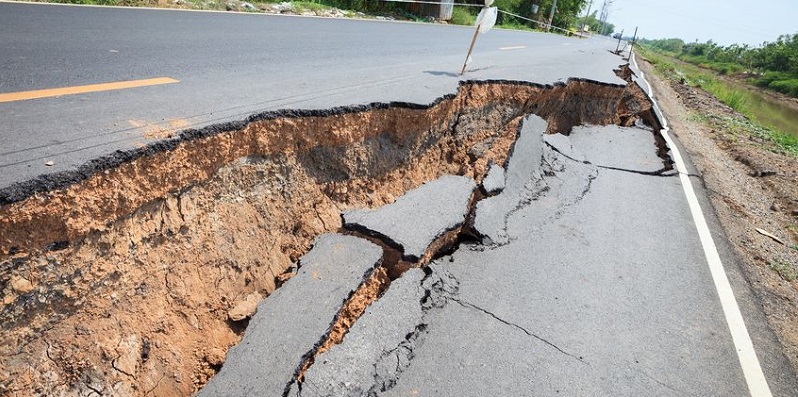Drivers should be aware of potential roadway dangers in the Englewood area, such as sinkholes, which have caused dangerous auto accidents. One sign of a sinkhole forming is the formation of cracks on the road’s surface, along with crumbling or erosion on the shoulders.
Englewood Faces Serious Drainage Issues
Spring rains are just around the corner, and for some Colorado cities, these occasionally heavy downpours can cause serious problems and potentially cause deadly auto accidents. When groundwater rises without adequate drainage, it can erode earth beneath the surface, producing sinkholes.
Sinkholes can lead to structural harm and instability under buildings, roads, and bridges. Repairing them after a breakdown is complicated and expensive. The underlying reason for the sinkhole must be focused on first, or the repair may not last and will require further work.
One Colorado city with a severe drainage problem is Englewood, about seven miles south of Denver, where flooding in a basement apartment drowned a woman in 2018. In Sheridan, just west of Englewood, a sinkhole on West Oxford Avenue swallowed up an SUV in July 2018; the driver escaped uninjured.
Addressing Englewood’s Drainage Problem
The director of public works in Englewood, Maria D’Andrea, recently discussed the findings of a study into solutions for the city’s drainage problem, and their costs.
D’Andrea’s 33-page report outlines the following options to address the city’s drainage problems:
- Transfer $3 million from the capital project fund to improve stormwater utilities.
- Refund residents 50 percent of the expenses they incur when voluntarily installing flood-control measures on homes in flood-risk zones around Oxford Avenue.
- Encourage the city to purchase up to 100 homes and properties within the flood zone so that engineers can reconfigure the area’s natural drainageway.
Although the city has around $950,000 in a stormwater utility fund, D’Andrea estimates that making recommended improvements in the flood plain would cost $45 million to $75 million.
In July 2019, the Colorado Transportation Commission approved $20.4 million for repairs to a collapsed stretch of U.S. 36 in Westminster, about 10 miles northwest of Denver. One week after crews first noticed cracking in the roadway, the sinkhole had expanded to more than 300 feet long and 60 feet wide and was sinking an inch every hour.
The Danger of Sinkholes
According to the Colorado Department of Transportation (CDOT), sinkholes are a common problem in the state. They can appear without warning and often form following a period of heavy or extended rain. Natural sinkholes occur when spaces under the surface of the road become large enough that the overlying surface is not able to support its own weight and fails. Sinkholes are commonly caused by groundwater washing away and removing material, erosion near drainage structures, and mining processes.
Drivers should be especially vigilant about sinkholes on roads after prolonged rains, when excess water can erode the soil under the surface of the road. One sign of a sinkhole forming is the formation of cracks on the road’s surface, along with crumbling or erosion on the shoulders. Bridges and roads above drainage are particularly prone to sinkholes after extended periods of rain because they are eroded by the constant flow of water and debris. Motorists should be concerned about the presence of sinkholes for several days and even weeks after heavy rain, when drier conditions make problems more apparent.
There are several scenarios in which someone might be held liable for injuries or damage sustained because of a sinkhole. If you were injured in an automobile accident in Englewood due to dangerous roadway conditions, contact personal injury attorney Dan Rosen at (303) 454-8000 or (800) ROSEN-911 to schedule your free initial consultation to discuss the details of your case.

